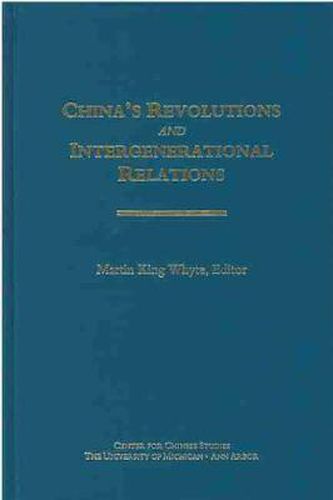Readings Newsletter
Become a Readings Member to make your shopping experience even easier.
Sign in or sign up for free!
You’re not far away from qualifying for FREE standard shipping within Australia
You’ve qualified for FREE standard shipping within Australia
The cart is loading…






China’s Revolutions and Intergenerational Relations counters the widely accepted notion that traditional family patterns are weakened by forces such as economic development and social revolutions. China has experienced wrenching changes on both the economic and the political fronts, yet from the evidence presented here the tradition of filial respect and support for aging parents remains alive and well.Using collaborative surveys carried out in 1994 in the middle-sized industrial city of Baoding and comparative data from urban Taiwan, the authors examine issues shaping the relationships between adult Chinese children and their elderly parents. The continued vitality of intergenerational support and filial obligations in these samples is not simply an instance of strong Confucian tradition trumping powerful forces of change. Instead, and somewhat paradoxically, the continued strength of filial obligations can be attributed largely to the institutions of Chinese socialism forged in the era of Mao Zedong. With socialist institutions now under assault in the People’s Republic of China, the future of intergenerational relations in the twenty-first century is once again uncertain.
$9.00 standard shipping within Australia
FREE standard shipping within Australia for orders over $100.00
Express & International shipping calculated at checkout
China’s Revolutions and Intergenerational Relations counters the widely accepted notion that traditional family patterns are weakened by forces such as economic development and social revolutions. China has experienced wrenching changes on both the economic and the political fronts, yet from the evidence presented here the tradition of filial respect and support for aging parents remains alive and well.Using collaborative surveys carried out in 1994 in the middle-sized industrial city of Baoding and comparative data from urban Taiwan, the authors examine issues shaping the relationships between adult Chinese children and their elderly parents. The continued vitality of intergenerational support and filial obligations in these samples is not simply an instance of strong Confucian tradition trumping powerful forces of change. Instead, and somewhat paradoxically, the continued strength of filial obligations can be attributed largely to the institutions of Chinese socialism forged in the era of Mao Zedong. With socialist institutions now under assault in the People’s Republic of China, the future of intergenerational relations in the twenty-first century is once again uncertain.